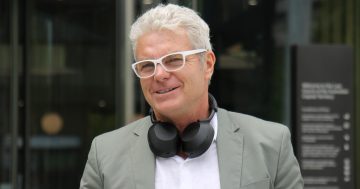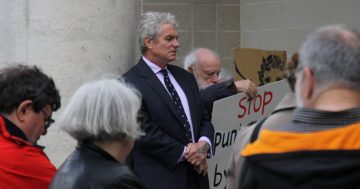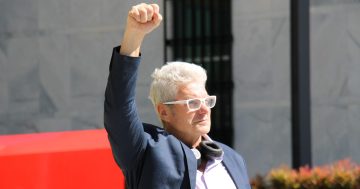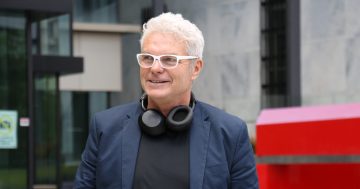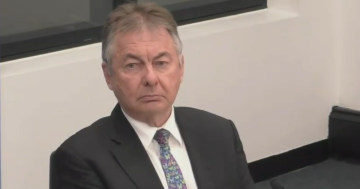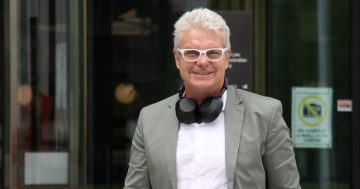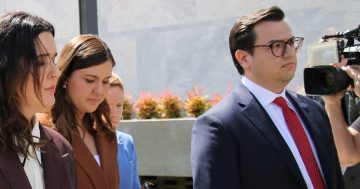
Exactly who is on that list of people David Harold Eastman must not approach as part of his bail conditions – as he awaits a decision about a new trial for the murder of Assistant Commissioner Colin Winchester? Am I on it? Are you?
There are 241 names on his bail list (so far withheld). But this figure seems unrealistically small when you imagine the number of people who might have a reason to be concerned, such as the people from public and private life that Eastman used to ring up and abuse and threaten or even accost in public prior to his 1995 sentence for (what we all understood was going to be, but now might not be) life imprisonment.
It could include from 200 to 300 people he is alleged to have assaulted/accosted/menaced/threatened, including various public officials, police, his neighbors and individuals he met in parking areas.
Nor does the list seem big enough for those involved in the lengthy police investigation – at close on five years one of the longest murder investigations in Australian police history? What about the police (senior and uniformed) and their families, and police staff and their families?
What of the numerous members of his own (regularly sacked and shouted at) legal counsel, court officials, judges, barristers, prosecutors, public servants (Federal and ACT), politicians and politicians’ staff members and – yes – even journalists?
The Full Bench of the ACT Supreme Court decided to quash the conviction after an inquiry headed by Justice Brian Ross Martin concluded there had been a “substantial miscarriage of justice” in Eastman’s trial and recommended the conviction be quashed. However, Martin said he was “fairly certain” that Eastman was guilty, a finding based on (of all things) a “nagging doubt”.
So now Eastman is ‘at large’ so to speak and is on bail pending a new trial. But what happened to our our jury system, the cornerstone of democracy and freedom? Has trial by jury been turned on its head?How can this be overturned – you might reasonably ask – only by a handful of members of the legal profession, acting virtually alone?
I am sure the ACT Government didn’t want a retrial. The first trial alone was probably the most costly in Canberra’s history. Colin Winchester’s family certainly didn’t want a retrial. The Australian Federal police didn’t want a retrial. There was no public outcry as I recall.
It now turns out that it was all done behind the scenes and out of public view. The person in David Eastman’s corner who has worked on his behalf is his initial public defender, Terry O’Donnell, who has revealed that he worked on the Eastman case from retirement for at least six of the past 19 years. His book-sized report on the David Eastman case runs for some 130,000 words.
The quashing of the original trial leaves the ACT government and the prosecution with a serious dilemma. It is now almost 20 years since the trial and many of the participants are retired or perhaps no longer alive. Personal recollections may no longer have any validity. The circumstantial evidence is understood to be very strong but there is no guarantee of new trial or of the success of a new trial. And what of the forensic evidence, which was slammed by the inquiry?
It is well known that David Eastman did everything he could to disrupt his trial, and in the process undermining his own case, regularly yelling abuse and even throwing a water jug at the judge. He chanted aloud during witness testimony and called the judge a “lying c…”. He sacked his own counsel on 11 occasions. Later, while in prison, he reportedly used to fling gobs of excrement at prison warders.
One might conclude that Eastman has some serious psychological problems. Or you could argue that his behaviour helped to open a window of opportunity for a later claim about unfair treatment in court leading to a mistrial.
Meanwhile, how do we get our names on that list?













